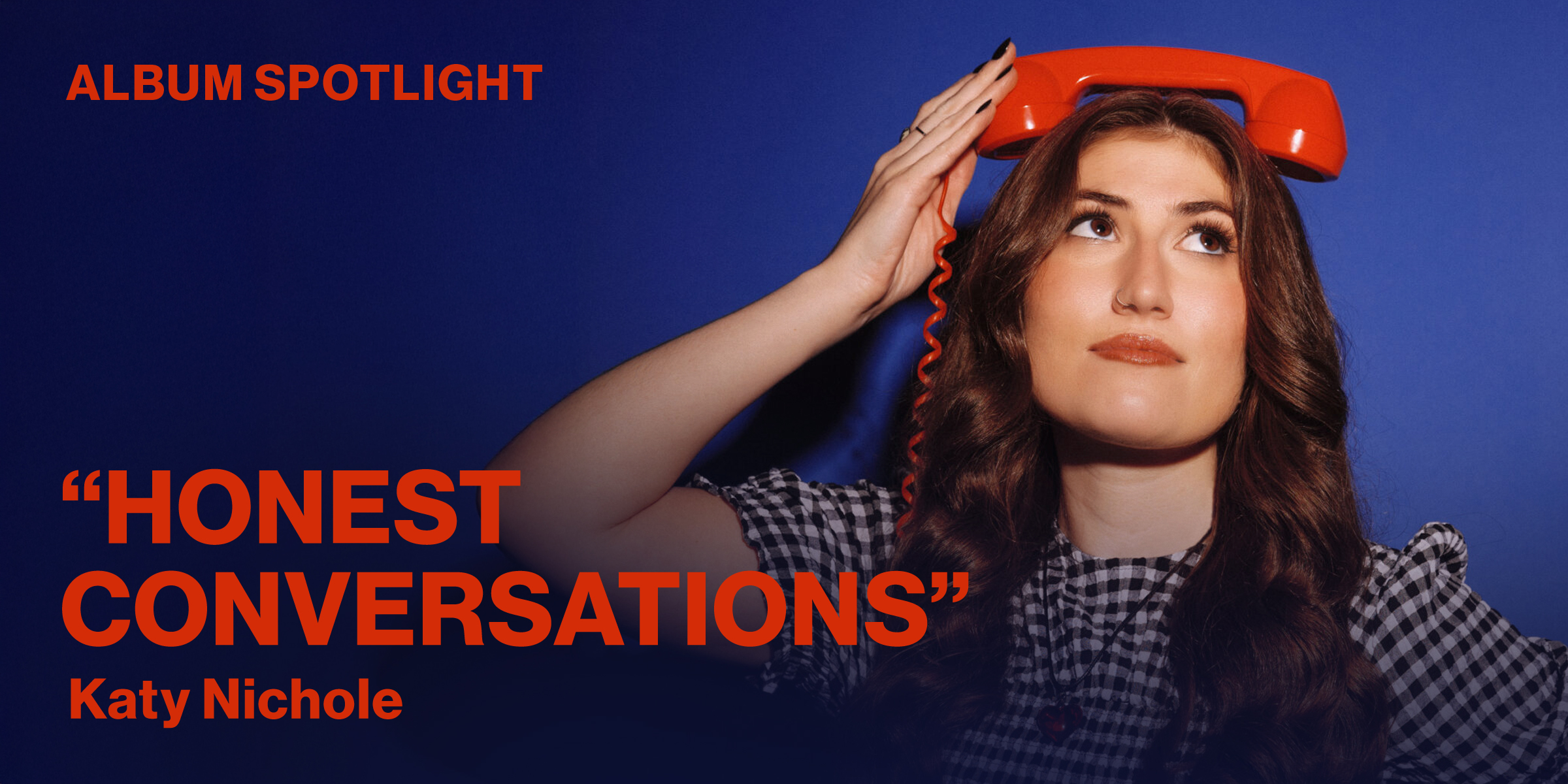
Reader Discretion Advised: The following content discusses self-harm, mental health, anxiety and depression and may not be suitable for all audiences.
Katy Nichole’s sophomore effort, “Honest Conversations,” is appropriately titled. Vulnerability leads the way on the 12-track endeavor, shining a light on subjects that often go unaddressed and are, at times, uncomfortable in Christian circles. Yet, Nichole tackles each topic in an endearing way. Her honesty isn’t threatening; it’s genuine. She’s not trying to incite debate; she’s simply attempting to relay wisdom she wishes she would have heard as a teen, struggling with chronic illness and debilitating depression.
Reading like a letter to her younger self, “Honest Conversations” unveils Nichole’s transparent second chapter. The K-LOVE Fan Award winner has never shied away from her personal demons, remaining open about a past suicide attempt. However, lyrically, she digs even deeper this time, exposing her innermost doubts and fears. Sonically, she goes to unexpected places that stretch her as a vocalist and better solidify her identity as an artist.
Her debut, “Jesus Changed My Life,” was a mix of power ballads and country-tinged originals, anchored by “In Jesus Name (God of Possible),” the viral prayer that catapulted Nichole to acclaim. For “Honest Conversations,” the chart-topper abandons her country-pop blend in favor of a decidedly rock direction on nearly all of her more upbeat offerings. On the whole, the album assumes a darker, grittier tone than her previous work.
RELATED CONTENT: Katy Nichole and Naomi Raine Unite for Powerful New Ballad ‘My God Can’
Late last year, lead single “When I Fall” presented fans with the first taste of “Honest Conversations.” Solely written by Nichole, the desperate plea depicts our Heavenly Father as a safe place to land when we make mistakes or when we simply have nowhere else to turn. The anguished selection is only the tip of the iceberg, however, when it comes to Nichole’s unvarnished candor.
The piano-led title cut, which begins the collection, articulately introduces the record’s overarching concept, asking unflinching questions of God, like: “If You love me, then why do I hate myself?” Later, she takes a hard look in the mirror on “Learning How to Love Myself,” which tackles the extremes of self-confidence and self-loathing and urges fans to accept every part of who God created them to be, especially when they don’t particularly like the reflection staring back at them.
Awash in angsty indie rock, “Thorns” — arguably one of the album’s most surprising additions from a sonic perspective — finds the “Hold On” singer affirming two things can be true at once: You can love Jesus and still be a mess. Closing benediction “Healing Now” also addresses similar dualities as she thanks the Lord for therapy and medication, both of which, she says, have helped her fight depression.
RELATED CONTENT: Katy Nichole Named as a Female Artist Shaping K-LOVE
Penultimate track “My Dreams” serves up a compelling point of view over lush, stacked vocals as she admits reality hasn’t lived up to her aspirations. It’s an ironic confession considering the young 20-something has seemingly “arrived,” thanks to a growing fanbase, consecutive No. 1 hits and several accolades to her name. Yet, she affirms the grass isn’t always greener on the other side.
On the cinematic “Who Am I,” Nichole answers the universal question of purpose and identity with an other-worldly performance that shows off her expansive range. She obviously harnesses some impressive vocal chops across the soaring ballad, yet it’s the stripped-back, plucky determination of “I Hope You Stay” that stands out as one of the LP’s best moments. While void of any spectacular runs, it might just pack the most punch with a message perfectly aimed at the person on the brink of giving up: You matter, and your life has meaning.
RELATED CONTENT: Katy Nichole Nominated for Female Artist of the Year in the 2025 K-LOVE Fan Awards
Although it explores serious subject matter, “Honest Conversations” is more than just a morose disclosure. It gives listeners permission to struggle. It provides ample space for wrestling and questioning and venting. Above all, it points to the ultimate hope in the midst of all the chatter — the hope of Jesus. Nichole admits to not having all the answers, but she also testifies to having found the answer.
There’s no neat bow tied at the end, but it feels like progress has been made by track 12 as the blossoming artist enters a season of vibrant, hard-won restoration, noting that healing is never one-and-done, but an ongoing process and a necessary part of the human experience. Part diary entry, part confession, “Honest Conversations” is like a missive from a friend who’s been where you’re standing and has come out on the other side with a fierceness and a fortitude built only through suffering.
“I hope these songs meet you where you’re at and start your healing journey,” Nichole says of the project. “In whatever season you’re walking through, just know, you’re never walking alone.”


